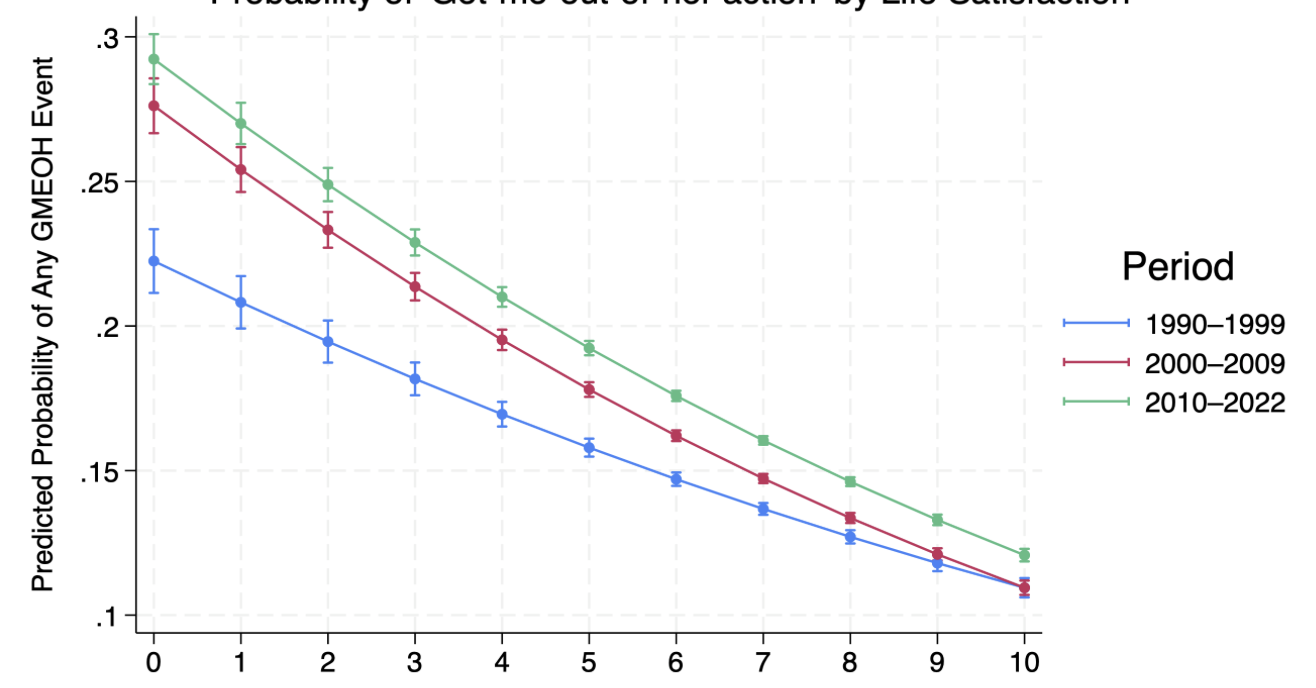Open Philanthropy (OP) is the largest grantmaker who is moving money to the things I think are most valuable, including (disclosure!) my work at the NAO. There's been a lot of discussion in the effective altruism community about where this leaves smaller donors, and where they might have a comparative advantage. For example:
OP recently announced that due to changes in Good Ventures' (GV) strategy that they'd be recommending less funding in several areas. This seems to have included work on wild animal welfare, invertebrate welfare, digital minds, and gene editing, though I'm not aware of a public list. If you trust OP's prioritization more than GV's and/or you think these are valuable neglected areas, you could help make up for this shortfall.
Some kinds of work offer PR risks, either to OP or to OP's other grantees. Many individuals are better placed to take on these risks.
Money donated directly to US political candidates is restricted on a per-person level, and goes farther than unrestricted "Super PAC" donations. Individual donors have a strong advantage here.
Some kinds of policy work don't have regulations that restrict funding, but are still restricted in practice. For example, an advocacy organization could be more effective when it can demonstrate broad-based support, or could be tarred by the support of billionaires like Moskovitz and Tuna.
For policy and politics in other countries the effect is even stronger: in some cases it's illegal for OP to make these kinds of grants, while in others it's just politically counter-productive. On the other hand, small-scale donors contributing to political efforts in their own countries is generally seen as the way politics is supposed to work.
This is not a complete list [1] but I do think it has the biggest reasons. Overall it seems to me that if an independent donor is funding something OP would be happy to fund, ideally the donor would find somewhere they could do better.
Despite all this, I've generally not felt like our family's donations have taken advantage of our position as independent donors. Mostly we've contributed to Funds, and while some of these relative advantages don't apply there (they don't need to convince GV to make grants) most still do.
I think the main reason we haven't done better here is that investigating and comparing donation opportunities is a lot of work. Julia and I both work full time on things we think are pretty important, and this is the kind of question worthy of significant thought. Sometimes people suggest donor lotteries as an improvement here, but aside from my general qualms I think even if we won we wouldn't want to take time away from our full-time work to get into grantmaking. [2]
If you're giving away extremely large amounts of money it makes sense to hire full-time grantmakers to allocate it (which is essentially what OP is). If you're a bit smaller than that but still quite large then there are multiple efforts (ex: Founders Pledge, Longview) that offer customized advice. But I'm not aware of any projects that aim to advise what we might call "Small Major Donors": people giving away perhaps $20k-$100k annually. I think this segment is primarily people earning to give, but it would also include some people (hi!) who see most of their impact as coming via their work but still donate a signficant portion of their income.
This would need to be a model with lighter-weight advising than would make sense in targeting larger donors, and getting the balance right would be tricky. You could end up with people feeling like with the scale of their giving they ought to be getting significant custom research, not understanding how much that research costs. On the other hand, to be worth running it would need to be able to out-perform funging against OP or donating to Funds.
Does something like this exist, and I just don't know about it? (Which would be bad, since the target market isn't all that large and would include me.) Alternatively, does this seem like something that would be worth someone starting? I'd love to have something to recommend to people earning to give, and to use in thinking through my own giving.
[1] Another thing I considered adding is that you may know about
especially strong opportunities in your personal network. Whether the
specific people running a project are the right ones for the effort is
a critical judgement in funding early-stage work, and grantmakers
often have much less information than you do. But grantmaker-grantee
relationships, including and perhaps especially prospective ones, are
quite fraught, and I (weakly) think that overall the social effects of
turning so many personal and professional relationships into
prospective grantmaker-grantee relationships is harmful on balance.
[2] There's also a significant difference between the ideal of a donor lottery and donor lotteries in practice. The standard argument assumes that money you might win in the lottery is as unrestricted as the money you put in, but actually whatever organization sponsors the lottery needs to agree that your donation is appropriate. Since many things worth doing are 'weird' (grants to individuals, investments in for-profit enterprises, funding your own charity, actions with PR risks, ...) this can significantly reduce the upside of winning a donor lottery.
Comment via: facebook, lesswrong, the EA Forum



At Giving Green, we happily provide free consultations for donors in this range who are interested in climate change mitigation.